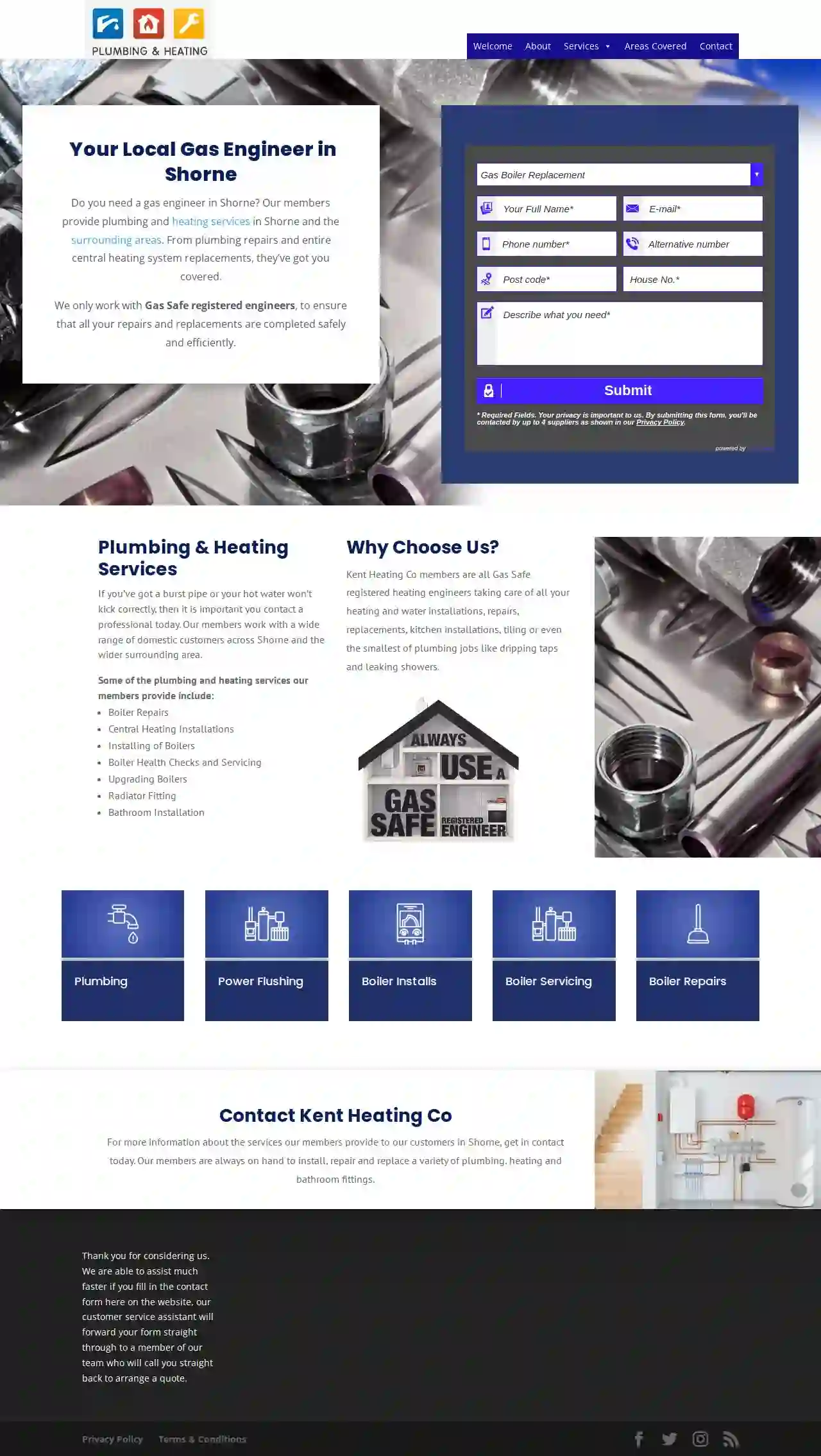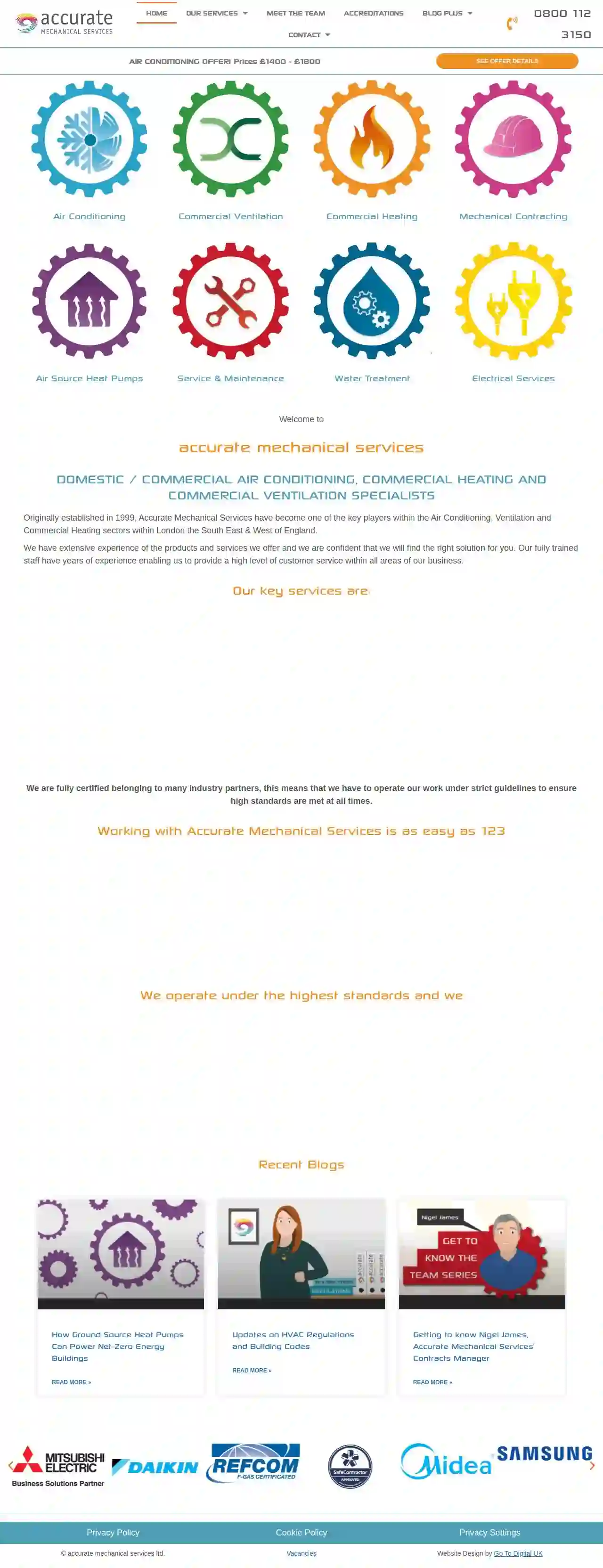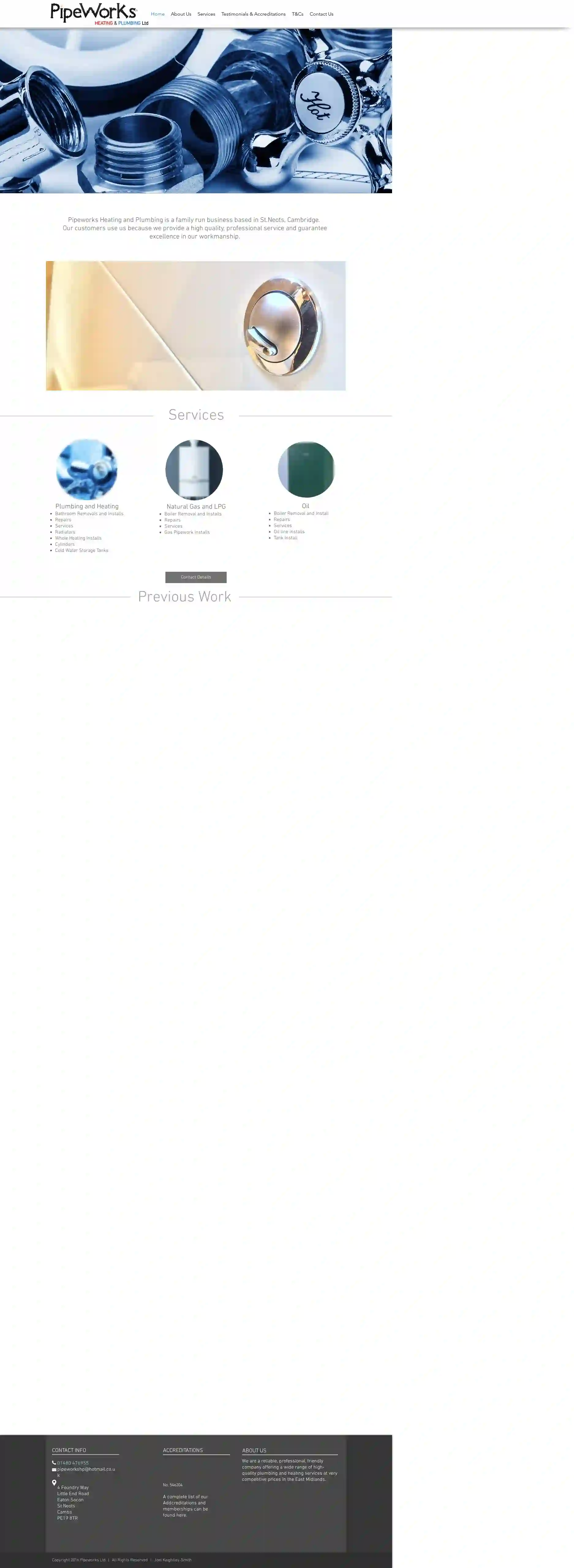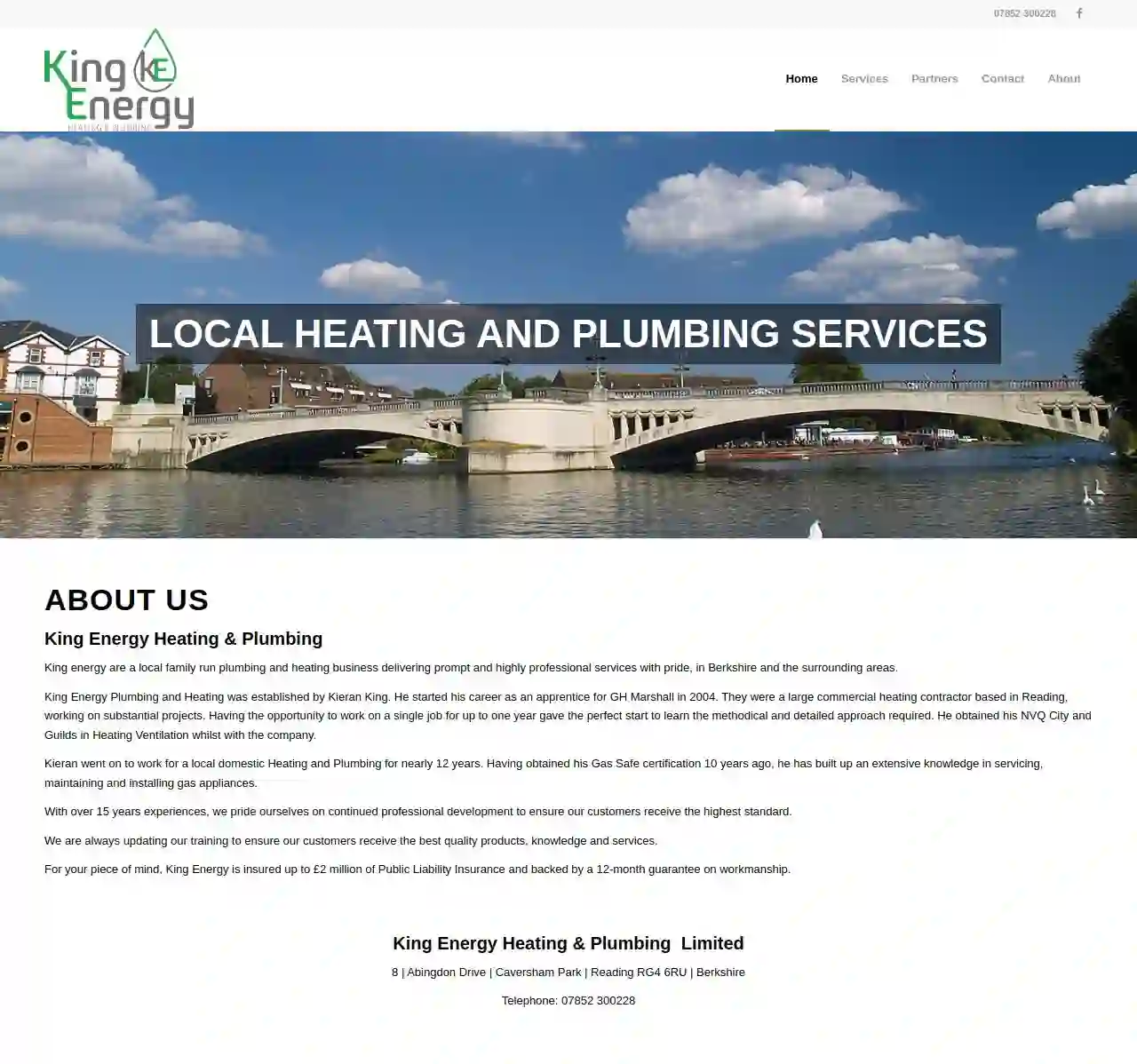Boiler Installation Barkham
Find Boiler Installation in Barkham
Get multiple New Boiler quotes for your project today! Compare profiles, reviews, accreditations, portfolio, etc... and choose the best deal.

Neater Heat Ltd
5251 reviews6 Beechnut Ind Estate, Beechnut Road, Aldershot, GU12 4JA, GBNeater Heat Ltd is your local heating experts, committed to keeping you cozy and comfortable. Whether you're a homeowner or a landlord, we've got you covered with affordable care plans starting from just 48p a day! Our mission is to ensure that our affordable energy solutions evolve to meet the changing needs of our customers and the industry, while maintaining our reputation for the highest quality of service.
- Services
- Why Us?
- Accreditations
- Our Team
- Gallery
Get Quote
AOC Plumbing & Heating Services
51 reviewsShorne, High Street, Unit 1, The Business Centre, ME9 7AA, GBKent Heating Co is a network of Gas Safe registered heating engineers serving Kent and the surrounding areas. They offer a comprehensive range of plumbing and heating services, from small repairs like dripping taps to large installations like central heating systems. Their team of experienced engineers ensures all work is completed safely and efficiently. Whether you need a boiler repair, installation, or servicing, Kent Heating Co has you covered. They also provide power flushing, smart thermostat installation, and bathroom installations. For a prompt and reliable service, contact Kent Heating Co today.
- Services
- Why Us?
- Gallery
Get Quote
Accurate Mechanical Services
52 reviewsAldershot, GBWelcome to accurate mechanical services, Domestic / Commercial Air Conditioning, Commercial Heating and Commercial Ventilation specialists. Originally established in 1999, Accurate Mechanical Services have become one of the key players within the Air Conditioning, Ventilation and Commercial Heating sectors within London the South East & West of England. We have extensive experience of the products and services we offer and we are confident that we will find the right solution for you. Our fully trained staff have years of experience enabling us to provide a high level of customer service within all areas of our business. Our key services are: High end bespoke Mechanical Services, design and build. We offer specialist sub-contractor services to many Commercial Office fit out and industrial refurbishment companies. Air Conditioning, Ventilation and Commercial Heating installations. 24/7 Re-active breakdown service. Planned Preventative Maintenance (PPM) to ensure our customers equipment is in tip top condition. Carried out all year round to prevent possible equipment failures. We are fully certified belonging to many industry partners, this means that we have to operate our work under strict guidelines to ensure high standards are met at all times.
- Services
- Why Us?
- Accreditations
- Gallery
Get Quote
Pipeworks Heating & Plumbing
4.99 reviewsLittle End Road, 4 Foundry Way, St Neots, PE19 8TR, GBPipeworks Heating and Plumbing is a family run business based in St.Neots, Cambridge. Our customers use us because we provide a high quality, professional service and guarantee excellence in our workmanship. We are a reliable, professional, friendly company offering a wide range of high-quality plumbing and heating services at very competitive prices in the East Midlands.
- Services
- Why Us?
- Accreditations
- Gallery
Get Quote
Forestcare Centre
4.410 reviewsTime Square, Market Street, Bracknell, GBForestcare is a 24 hour telecare response centre based in the heart of Bracknell. We provide a range of telecare solutions to both individuals and organisations. Our dedicated team is here every day of the year to provide support and assistance. We are regulated by both the Telecare Services Association and the Care Quality Commission to make sure the services we offer are of the highest standard.
- Services
- Why Us?
- Testimonials
- Gallery
Get Quote
King Energy Heating & Plumbing
55 reviewsCaversham Park, 8 Abingdon Drive, Reading, RG4 6RU, GBKing Energy Heating & Plumbing is a local, family-run business providing prompt and professional plumbing and heating services in Berkshire and the surrounding areas. Founded by Kieran King, the company boasts over 15 years of experience. Kieran began his career as an apprentice for a large commercial heating contractor, gaining valuable experience in methodical and detailed approaches. He later worked for a local domestic heating and plumbing company for nearly 12 years, acquiring his Gas Safe certification and building extensive knowledge in servicing, maintaining, and installing gas appliances. King Energy is committed to continuous professional development, ensuring customers receive the highest standard of service and the latest products and knowledge. For peace of mind, the company is insured up to £2 million of Public Liability Insurance and offers a 12-month guarantee on workmanship.
- Services
- Why Us?
- Accreditations
- Our Team
- Gallery
Get Quote
Premier Heating Solutions
4.8200 reviewsHorseshoe Road, 19 Horseshoe Park, Pangbourne, RG8 7JW, GBPremier Heating Solutions is a leading provider of fixed-price plumbing and heating services in Berkshire, South Oxfordshire, and North Hampshire. With over 880 reviews, we're the highest rated heating engineers on Which? Trusted Traders. We offer a range of repayment methods, a lifetime guarantee on selected boilers, and 24/7 ongoing support at no additional cost. Our team of directly employed engineers install several hundred boilers every year, and we only install the most dependable and efficient boilers available. We offer industry-leading guarantees and all of our installations come with 24/7 support to give you peace of mind for years to come.
- Services
- Why Us?
- Accreditations
- Gallery
Get Quote
Cooling Services 24
518 reviewsUNIT 10A RECTORY ROW, Bracknell, RG12 7BN, GBDelivering friendly air conditioning services and meeting new people is a unique opportunity that we wish to continue by many years to come. We've been approved by approvedbusiness.co.uk. We use cookies on our website to give you the most relevant experience by remembering your preferences and repeat visits.
- Services
- Why Us?
- Accreditations
- Gallery
Get Quote
Glenhurst Mechanical Services Ltd
Reading Road, Unit 2 Woodley Park Estate, Woodley, RG5 3AW, GBSince 1991, Glenhurst have designed and built a multitude of Mechanical Services within the construction industry and directly for end user clients. Glenhurst have been employed in a whole variety of sectors from classic historic houses to high end London retail. Primarily designing, procuring and installing LPHW heating, hot and cold water services, plumbing, ventilation and air conditioning, other complimentary facilities such as, air and ground source heat pumps, sprinkler systems, automatic control systems, foam dry risers etc. have been installed, utilising specialist sub-contractors. The built environment is Glenhurst’s area of expertise and we have a wealth of knowledge to be consulted upon, with advice on any design and build or pre-designed services project, that may arise. From the outset, Glenhurst’s sole aim, is to deliver every project on time, on budget, but most importantly to the entire satisfaction of the employer. With Director level involvement, to the skilled and experienced site and office staff employed, co-operation, advice and a “can do” attitude toward the tasks encountered, mark Glenhurst’s style. We welcome the opportunity, to offer the benefit of our experience to our Clients, at any time the prospect arises. Please contact Glenhurst through our website, email or directly, to discuss your requirements.
- Services
- Why Us?
- Accreditations
- Our Team
- Gallery
Get Quote
Thermotec Plumbing & Heating Specialists
513 reviewsReading, GBThermotec Plumbing and Heating is your trusted partner for exceptional plumbing and heating services. Our journey began at British Gas, where we completed our apprenticeships and gained invaluable experience over 12 years. This solid foundation equipped us with the expertise and dedication needed to excel in the industry. In 2015, we established Thermotec Plumbing and Heating with a vision to provide superior service and innovative solutions. Our extensive background ensures that we deliver high-quality workmanship and reliable results for every project, big or small. At Thermotec, we specialise in a wide range of services, including residential and commercial plumbing, advanced heating solutions, and maintenance. Our team is committed to staying current with the latest industry advancements to offer the most efficient and effective solutions to our clients. Our mission is to build lasting relationships with our customers through transparent communication, competitive pricing, and exceptional service. We understand the stress that plumbing and heating issues can bring, and we strive to make every experience as smooth and hassle-free as possible. Since our inception, we have been dedicated to ensuring the comfort and satisfaction of our clients. Trust Thermotec Plumbing and Heating to keep your home or business running smoothly and efficiently every day of the year.
- Services
- Why Us?
- Accreditations
- Testimonials
- Gallery
Get Quote
Over 12,692+ HVAC Contractors registered
Our HVAC companies operate in Barkham & surroundings!
HVACCompaniesHub has curated and vetted Top HVAC Companies in and around Barkham. Find the most trustworthy contractor today.
Frequently Asked Questions About Boiler Installation
- Upgrade to a high-efficiency condensing boiler: They reduce energy loss and lower your heating bills.
- Install a programmable thermostat: A programmable thermostat allows you to set different temperatures for different times of the day , helping to reduce energy waste and lower heating costs. .
- Insulate your home: Good insulation helps trap heat, keeping your house warm and reducing the amount of work your boiler needs to do. .
- Service your boiler annually: Regular servicing ensures your boiler is running as efficiently as possible. .
- Powerflush your system: Remove buildup that interferes with your system's performance. It also extends the lifespan of your boiler.
How long does it take to install a boiler?
How do I repressurize my boiler?
How do I find a boiler installer near me?
How can I make my boiler more energy-efficient?
How long does it take to install a boiler?
How do I repressurize my boiler?
How do I find a boiler installer near me?
How can I make my boiler more energy-efficient?
- Upgrade to a high-efficiency condensing boiler: They reduce energy loss and lower your heating bills.
- Install a programmable thermostat: A programmable thermostat helps regulate heating schedules, helping you use less energy and save money.
- Insulate your home: Adequate insulation in walls, attics, and floors can make a big difference.
- Service your boiler annually: Regular servicing ensures your boiler is running as efficiently as possible. .
- Powerflush your system: Over time, sludge and debris can build up in your heating system, reducing efficiency. A powerflush cleans the system, improving circulation and heat output.